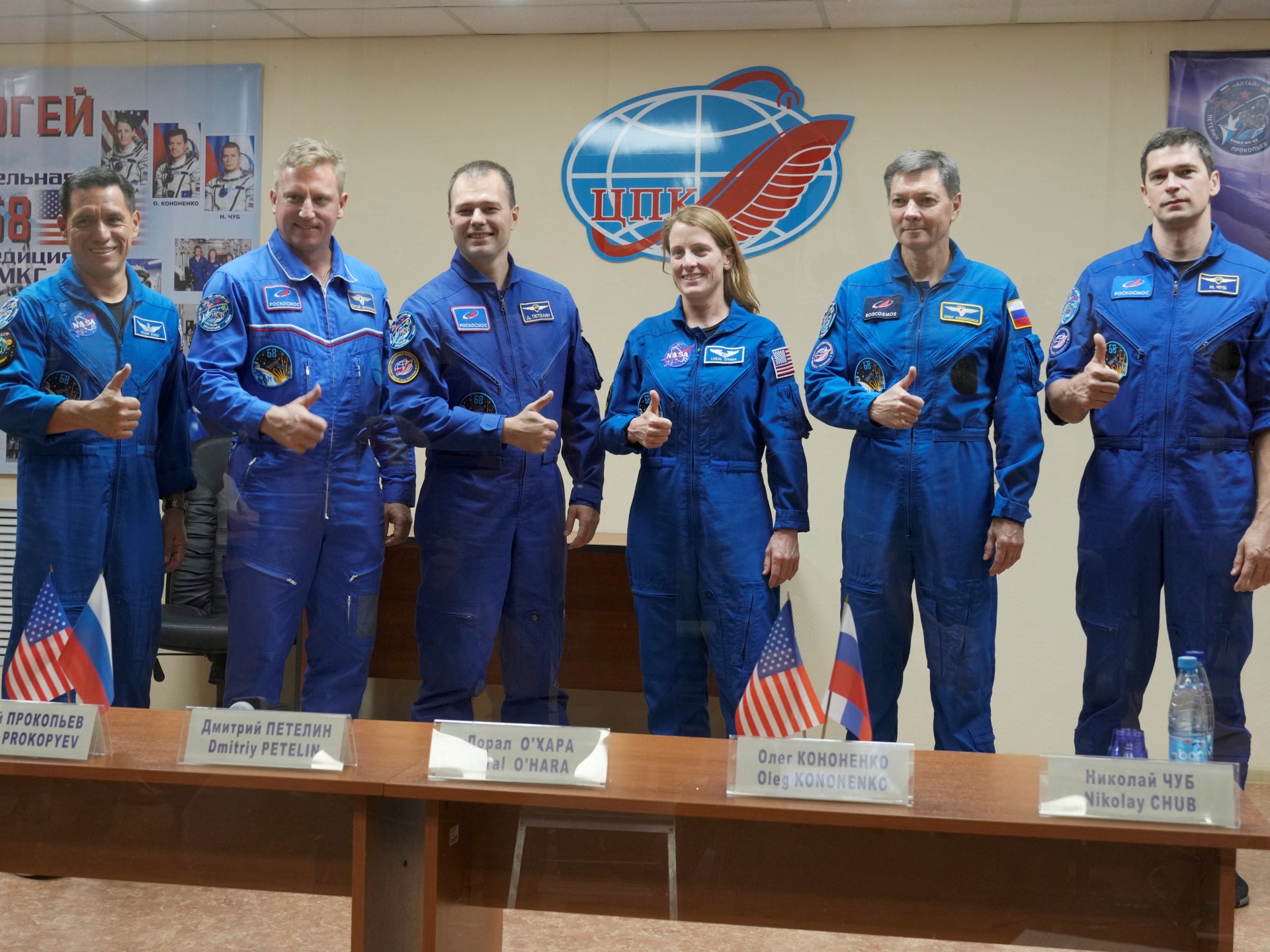The joint flight comes after Russia recently announced it would withdraw from the space station after 2024 amid tensions with the West over the Ukraine war.
A US astronaut and two Russian cosmonauts are scheduled to take off on a Russian-operated flight to the International Space Station (ISS), despite rising tensions between Moscow and Washington over the Russian invasion of Ukraine.
NASA’s Frank Rubio and Russians Sergey Prokopyev and Dmitry Petelin are scheduled to lift off from the Russian-leased Baikonur Cosmodrome in Kazakhstan at 13:54 GMT on Wednesday, according to Russia’s Roscosmos space agency.
Rubio will be the first US astronaut to fly to the ISS on a Russian Soyuz rocket since President Vladimir Putin sent troops to pro-western Ukraine.
In response, Western capitals, including Washington, have hit Moscow with unprecedented sanctions and bilateral ties have plummeted to new lows.
However, space has managed to remain an outlier of cooperation between the two countries.
Following Rubio’s flight, Russia’s only active cosmonaut, Anna Kikina, is expected to travel to the orbital station aboard a SpaceX Crew Dragon in early October.
She will become only the fifth professional cosmonaut from Russia or the Soviet Union to fly into space, and the first Russian to fly aboard a spacecraft operated by SpaceX, the company owned by US billionaire Elon Musk.
With both flights scheduled to go ahead, Russian cosmonauts and western astronauts have tried to avoid the conflict raging on Earth, especially when in orbit together.
A few weeks ago, NASA’s Rubio spoke of an “incredibly important mission” and said he was “good friends” with his Russian crewmates.
Rubio called the collaboration between NASA and Russia’s Roscosmos space agency “good and strong” despite heightened tensions between Moscow and Washington.
Russia leaves the ISS
Currently, the ISS depends on a Russian propulsion system to maintain its orbit about 250 miles (400 km) above sea level, with the US segment responsible for electricity and life support systems.
But tensions in the space arena have risen after Washington announced sanctions on Moscow’s aerospace industry, prompting warnings from Russia’s former space chief Dmitry Rogozin, a fervent supporter of the Ukraine war.
Russia recently said it will withdraw from the space station after 2024 amid the conflict — but no specific date was given, and some analysts doubt Russia will go through with it.
NASA called the decision an “unfortunate development” that would hamper scientific work on the ISS.
Space analysts say that building a new orbital station could take more than 10 years and Russia’s space industry, a point of national pride, could not thrive under heavy sanctions.
The ISS was launched in 1998 at a time of hope for cooperation between the US and Russia following their Cold War space race competition.
During this period, the Soviet space program flourished. It boasted a number of achievements, including sending the first human into space in 1961 and launching the first satellite four years earlier.
But experts say Roscosmos is now a shadow of its former self and has suffered a series of setbacks in recent years, including corruption scandals and the loss of a number of satellites and other spacecraft.
Russia’s year-long monopoly on manned flights to the ISS has also gone to SpaceX, along with millions of dollars in revenue.
#Russia #resume #space #missions #tensions #war #Ukraine


Leave a Comment